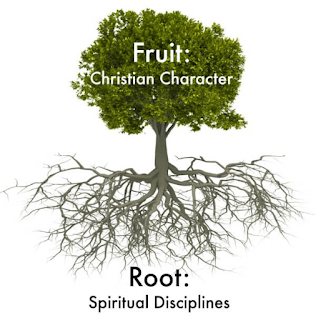Dear Friends,
Today’s “thought” was written to pastors and for pastors by Gordon MacDonald. Yet, what he says can apply to all believers who are in any way involved in serving or doing ministry. These are things we can all tend to do, or may have done – sometimes without even being aware we were doing them. Things which can gradually sap us of our spiritual passion and vitality.
Today’s “thought” was written to pastors and for pastors by Gordon MacDonald. Yet, what he says can apply to all believers who are in any way involved in serving or doing ministry. These are things we can all tend to do, or may have done – sometimes without even being aware we were doing them. Things which can gradually sap us of our spiritual passion and vitality.
Siphons are those things that suck the life out of us over time. And the reason it takes time is because most siphons begin so small we barely notice we’re even doing them! They often start like a small leak from the outlet faucet at the bottom of a water tank that wasn’t closed tightly enough. The loss of water is so small – and seemingly insignificant – that we see no immediate need to remedy it. Other times we may even see our life-sapping siphons as virtues we don’t need to remedy. One example would be the workaholic, who thinks that working incessantly without any regular Sabbath rest is a virtue, or believes that taking a Sabbath is just for 'lazy people.' It isn’t until they have no emotional strength left, or are in the throes of burnout, that they realize they let the siphon go unchecked too long.
As you read the thought for today, you might want to ask yourself if you have allowed any of these siphons to go on unchecked, and then take the appropriate action to stop the leak. Enjoy.
The Seven Deadly Syphons
Loss of spiritual passion seems to be the inevitable result of:
1.) Words without actions. We have a momentary feeling of spirituality when we talk about wanting to pray more or “have more time in the Word” but don’t follow through.
2.) Busyness without purpose. Ministry produces activities, programs, and conversations. If our choices of time-use are not disciplined by call and purpose, our energies become like a lazy, shallow river.
3.) Calendars without a Sabbath. A datebook filled with appointments but absent of significant hours (days) of quiet and reflection – written in first – is an abomination (an old and harsh word) to the God of the Bible, who said, “Six days you shall labor…the seventh day is a Sabbath to the Lord your God.”
4.) Relationships without mutual nourishment. Pastors tend to be acquainted with too many people but know too few people. The spiritual masters have told us for centuries that without soul-friends, we won’t gain spiritual momentum.
5.) Personality without self-examination. Too much ministry is built on unresolved anger, unhealthy needs for approval, and the instinct to control. Failing to explore our soul for unholiness ultimately takes its toll.
6.) Natural giftedness without spiritual power. A pastor can go a considerable distance in ministry with catchy words, people skills, political savvy, and a facility for organizational dynamics. But kingdom work demands qualities that only a filled-up soul can offer.
7.) An enormous theology without an adequate spirituality. A pastor cannot represent a view of reality that includes creation, evil, reconciliation and conversion, sacrificial service, and eternity – a mind-boggling expanse of conviction – and have a spiritual-exercise regimen that is pea-sized in contrast. A great theology demands a great spirituality.
Since these were written in 1999, we could surely add others, like the more contemporary siphons of:
1.) Surfing the internet without purpose, aim, limits, or self-discipline.
2.) Giving in to "small" sins and temptations regularly, and thinking that because they are "small" they don't add up to a big problem.
3.) Thinking that harmless distractions are harmless because the content is harmless, only to realize that hours a day, or days a month, or weeks a year, or years in a lifetime, that could have been used to bear fruit for the kingdom, have been wasted.
4.) Forgetting that the goal of gathering information is not to be smarter, but to be wiser.
5.) Remembering that if we are too busy to pray, we are too busy; and if we don't want to pray, we are losing (or have lost) touch with God.
We don't have to wait till New Year's Eve to make new resolutions, or adopt a needed change of direction in life, or repent for the slow erosion of once cherished values, helpful habits, beneficial disciplines, and spiritual practices. That can happen any time. For as the old saying reminds us, when it comes to doing things we should do, or need to do, "There's no time like the present."
In the Grace of Jesus, Pastor Jeff






Comments
Post a Comment